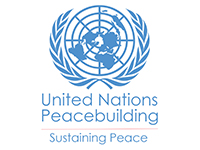Economic Development & Livelihood
Liberia faces various challenges associated with livelihood and entrepreneurship, including high levels of poverty, limited access to finance, inadequate infrastructure, lack of skills and education, and insufficient institutional support. Several problems affect livelihoods and entrepreneurship in
Liberia, including:
Liberia faces various challenges associated with livelihood and entrepreneurship, including high levels of poverty, limited access to finance, inadequate infrastructure, lack of skills and education, and insufficient institutional support. Several problems affect livelihoods and entrepreneurship in
Liberia, including:
Poverty: According to the World Bank, over half of the population in Liberia lives below the poverty line, with many households struggling to access basic needs such as food, shelter, and healthcare.
Unemployment: The unemployment rate in Liberia is high, particularly among youth, which limits opportunities for income generation and economic growth.
Limited access to education: Many people in Liberia do not have access to quality education, which limits their ability to secure well-paying jobs and improve their livelihoods.
Poor infrastructure: Lack of access to reliable transportation, electricity, and water can make it difficult for people to access economic opportunities and basic services.
Gender inequality: Women in Liberia face significant challenges in accessing education, healthcare, and economic opportunities, which can limit their ability to improve their livelihoods.
As part of our unique approach, we promote education and encourage entrepreneurship through our different programs rolled out at our safe spaces. Most importantly, we promote gender equity to create a balanced environment that fosters chances of opportunity for adolescent girls, women, and men.
Co-Programs
Be The Change Academy (BTCA)
The Be the Change Academy (BTCA) provides free business training and supports enterprise creation through one-on-one Business Plan Clinics. It funds the best of them through its own Revolving Loan Fund and offers business incubation and differential mentorship to each funded youth-led business start-up to ensure their success.
Our plan is to open more BTCAs across Liberia to train, over 5 years, 4000 young women from disadvantaged backgrounds to start small enterprises or seek self-employment and improve the quality of their lives. The project seeks to develop a low-cost, scalable BTCA model that could be easily replicated and annexed to every High School in the country, transforming the Education system to enable the economic participation of young women by supporting them to create their own profitable enterprises. Developed in India (and named after Gandhi’s great call to self-reliance: “you must be the change you want to see in the world) – the BTCA is designed by youth for youth.

We have decided to focus on a female-only BTCA – chiefly because young women have the greatest need, and also because they have proved to be more reliable loan-repayments than men. The BTCA model has proved popular amongst young women, immensely cost-effective, successful at improving existing businesses and a beneficial stimulus to local economies.The BTCA provides free business training to young women between 15 and 35 years old and living in informal settlements. Some will already be self-employed or be running a small business in the informal economy. The price of admission to the BTCA is the seed of a business idea. Each young trainee must demonstrate that they want to be an entrepreneur – and that they have thought through some kind of business idea. Further, they must commit their time to the training.
The key to the BTCA is that it is youth-run by energetic local and international volunteers supervised by an experienced local manager and finance officer. This makes the BTCA extremely youth-friendly – welcoming and un-intimidating to young women living at disadvantage.








